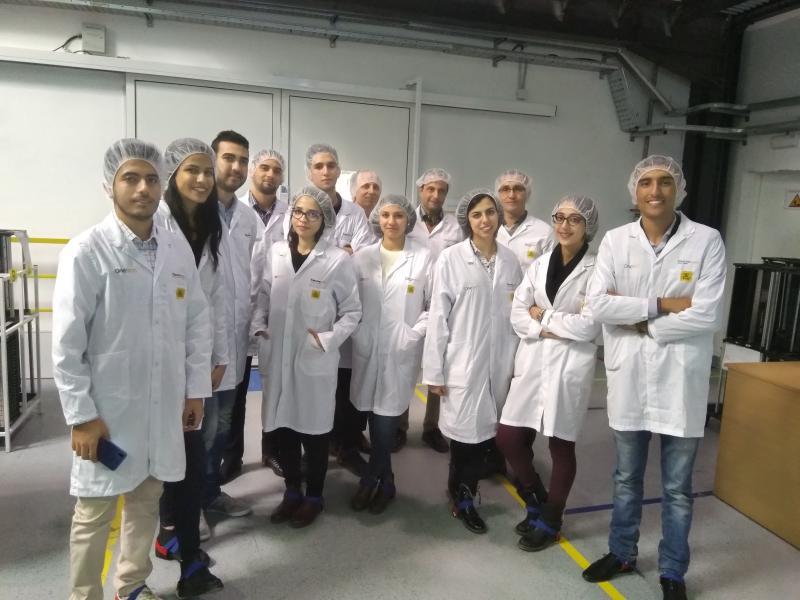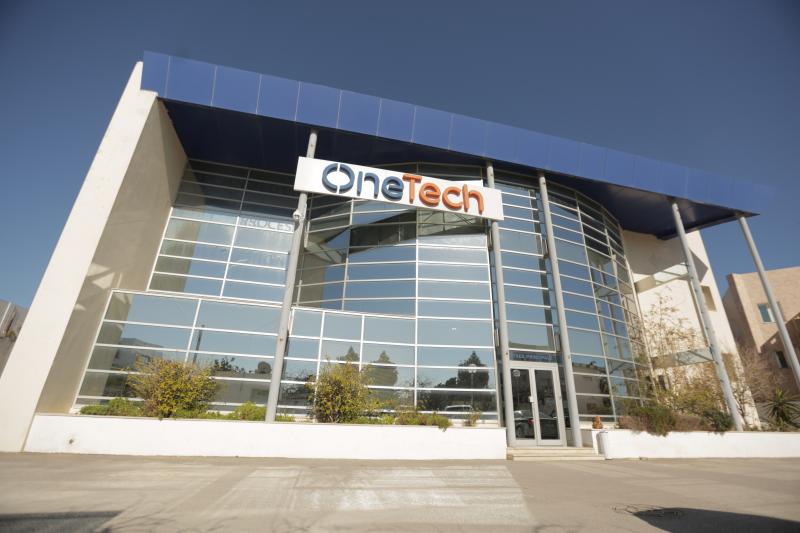When Feten graduated with an engineering degree from the prestigious Ecole nationale d’ingénieur in Tunisia, she thought she would have to leave her country to get a job in her field.
After all, most Tunisian engineering graduates were going abroad in search of better working conditions and salaries. Instead Feten, 31, was hired as a lean manufacturing engineer at OneTech, a company thatproduces printed circuit boards, electronics, plastics, connectors, harnesses and mechatronic modules. “I got my dream job close to my family and loved ones, I was and still am so grateful,” Feten says.
OneTech’s expansion in Tunisia, which includes improving its manufacturing facilities and boosting research, development and innovation, was made possible by a EUR 21 million loan from the European Investment Bank (EIB). Supporting innovation and businesses is a top priority for the EIB, the European Union's bank, along with modernizing the automotive industry.
The fact that the company hires approximately 50% of women aroused great interest,
“OneTech is an example of a successful North-South partnership between an important Tunisian industrial company and first-class European groups,” says Gratianne Dascon, the Bank’s investment officer who dealt with the loan operation.
The company is vertically integrated, from the co-design of components and development of software to the component manufacture. OneTech has become a North African success story with some impressive feats:
- revenue of $380 million, with exports accounting for 80% of sales in 2018
- the first African company to specialize in printed circuit boards for the automotive industry
- a recognized standard-setter in the industry
- 48% of its workforce is female
- 1235 people hired in the last three years, of which nearly half are women.
“The fact that the company hires approximately 50% of women aroused great interest,” says Dascon.
Real-time monitoring
At OneTech’s site in Bizerte, Feten manages an information system that connects and controls complex manufacturing processes. She tracks real-time data for various production lines, observing manufacturing as it happens. Her observations remove the need for other engineers to sift through lengthy reports to understand workflows.
“I love working on the ground,” Feten says. Real-time monitoring also enables OneTech to react quickly to problems and to recognize when equipment needs maintenance or when it may fail.
Thanks to the EIB’s support, OneTech is also investing in visual computing and mixed reality. Visual computing allows engineers to interact with and to control work processes by manipulating images. Mixed reality, in turn, blends virtual elements and the real world, which allows for the testing of different production processes.
The company is also investing in sensor technology and the 3D printing of components that can be used in autonomous cars, which have many sensors such as cameras, radar, lidar (light detection and ranging), and ultrasonic equipment to help the car’s navigation.

Digitally mimicking humans
Digitization, automation and artificial intelligence are revolutionizing the driver’s experience. “It is a growing market and an increasingly important part of our portfolio,” says Hedi Sellami, OneTech’s Chief Executive. “We are adapting to this new generation of mobility and to a new business environment where software has become the new hardware.”
You can have the best machines, but if you don’t have the right people, nothing happens,
Managing these disruptive technologies requires skills in innovation and mechatronic engineering, which focuses on electrical and mechanical systems and combines robotics, electronics, computerisation and telecommunications systems. “You can have the best machines, but if you don’t have the right people, nothing happens,” Sellami says.

Sellami’s father founded the company in 1979 after being denied a promotion elsewhere. OneTech has since grown to 4 500 employees, but Sellami says the company manages to keep its close-knit family atmosphere. In addition to its Tunisian sites, OneTech also has a factory in Morocco and a research and development facility in France.
OneTech’s rapid growth may help other educated Tunisians like Feten find jobs in their own country.
Everything is built on human potential,
